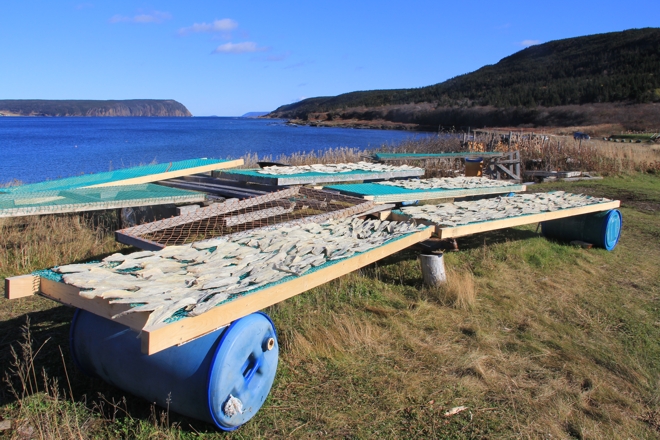Drying Areas
Crews swiftly gutted, headed, split and washed the cod before salting and drying it. Shoremen spread, piled and respread the fish until it was properly cured, gathering the product in piles at night to minimize exposure to the damp. This could take days or even weeks. There were three ways to expose the salt fish to the wind and sun:
- on cobble beach terraces (galets to Breton fishermen, graves to Normans)
- on evergreen boughs (rances)
- on raised wooden flakes (vigneaux).
Often covering hundreds of square metres, drying areas were divided by networks of paths that allowed access to the fish. Generally, on the exposed headlands and archipelagos of the northern Petit Nord, fishing crews preferred galets for drying fish. In the more southerly and mountainous part of the Petit Nord, in sheltered and wooded harbours, boughs and wooden flakes were more prevalent. Fir or spruce boughs could be laid directly on the ground, to create a matting for the drying fish. This system was suitable for rocky foreshores or higher terraces and escarpments above the beach terraces. Flakes had the advantage that they could be built over undulating ground. Like landing stages, flakes required a lot of timber, harvested from the slopes above the rooms. The annual depletion of timber forced crews working on relatively barren and treeless rooms, to seek wood elsewhere.
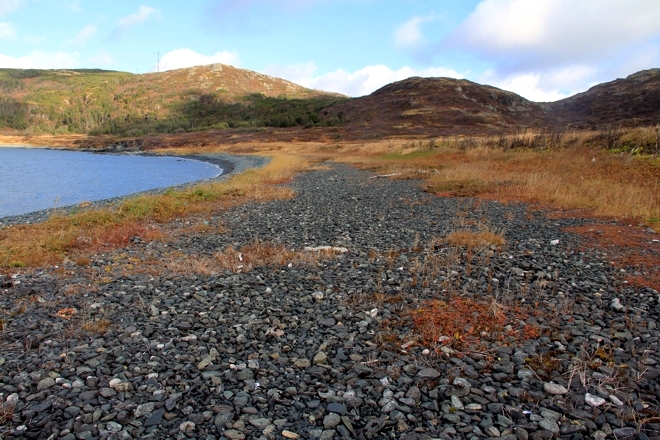
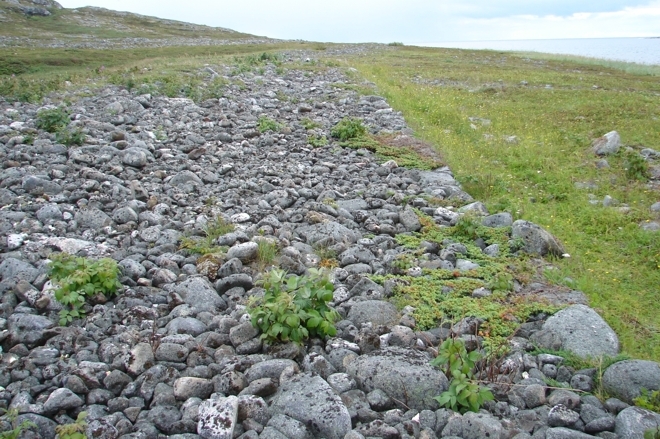
Archaeology
Galets are one of the most recognizable and easily identified features of the fishing rooms of the Petit Nord. They survive well, often only slightly obscured by shrubs. The remains of flakes and boughs survive less well and are often archaeologically invisible. Historic documents and photographs, such as those of Paul-Émile Miot provide plenty of evidence for their widespread use.
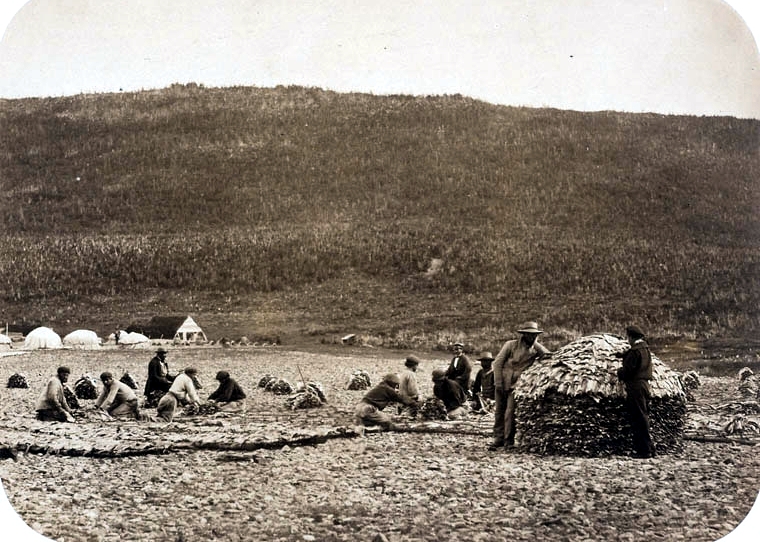
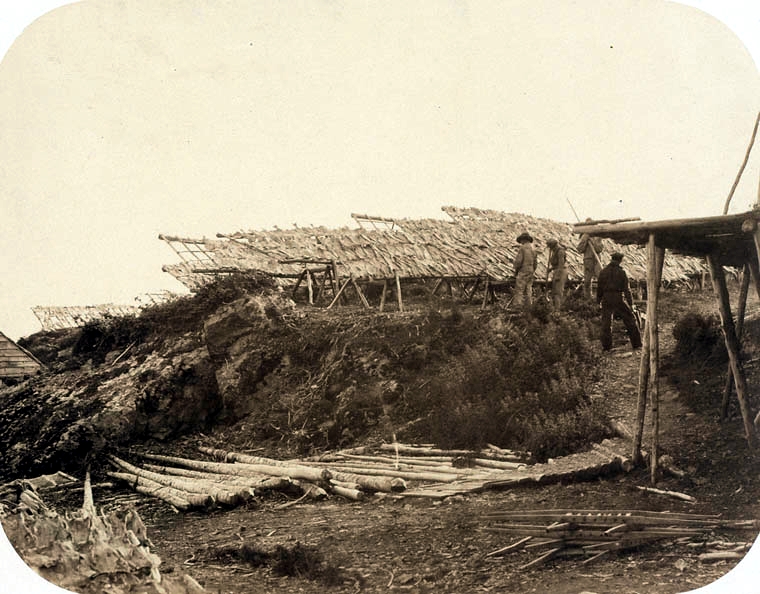
Canada, PA-202293.
PA-202294.
